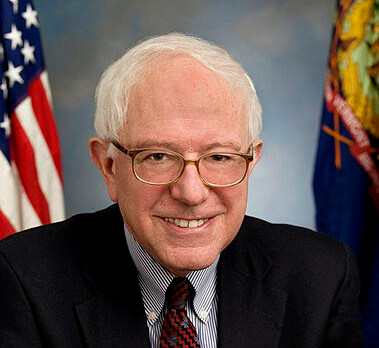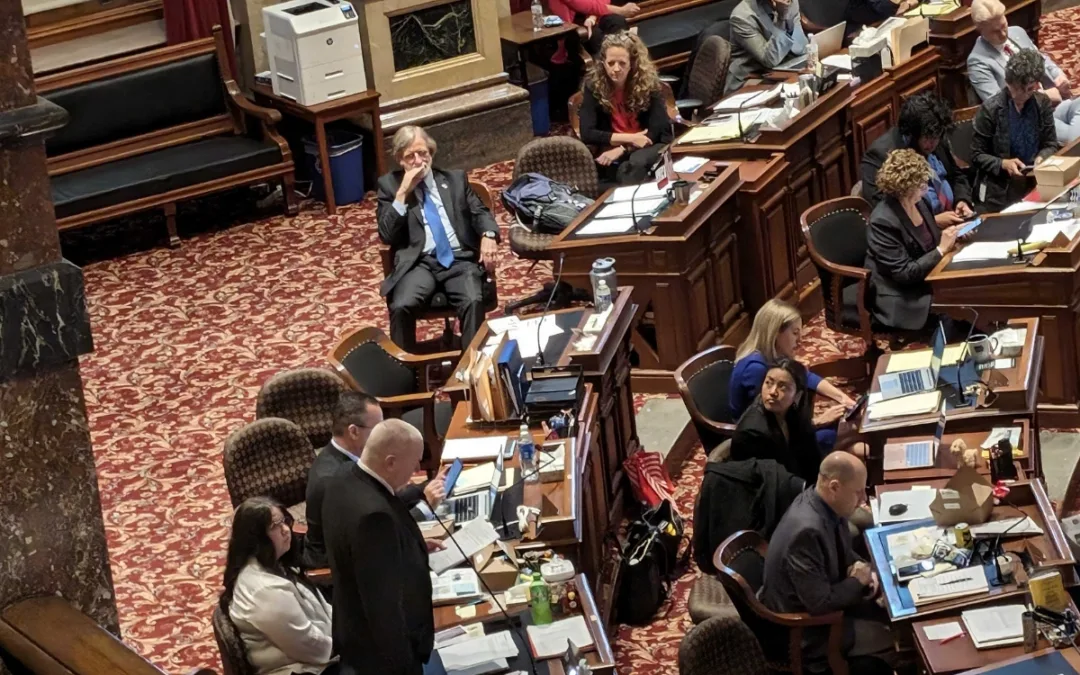
It’s official: Bernie Sanders is running for President. The U.S. Senator from Vermont made real his intentions on Thursday, saying he’ll take the unusual tactic of running as a Democrat in the primary, while remaining an Independent in the Senate. True to form, Sanders’ announcement wasn’t a flashy video or big rally. He just walked down to a quick press conference outside the Capitol, spoke for less than five minutes, and stuck solely to the issues he cares about. Then he headed back in to his work in the Senate. While it wasn’t your typical campaign kick-off, Sanders’ entry into the race will have a big impact on how the 2016 presidential race turns out. Here’s how:
What it Means for the Democratic Primary
Hooray, we have a race! Democrats anxious about Clinton gliding through the primary will let out a heavy sigh of relief with Sanders’ announcement. Sanders’ national profile and following among the progressive base ensures he’ll be able to raise just enough money and attract national press that he can stick in the race for a long time. It makes it considerably more likely we’ll see multiple primary debates for the Democrats. I’m not sure if Clinton would go one-on-one with O’Malley if it was only him in the race and he was gaining steam. More candidates on the debate stage lessen the risk for Clinton (well maybe, unless they all pile on with criticism, but that backfired for Clinton’s opponents when it happened in 2008).
Democratic Party leaders and down-ballot candidates should be happy too. A competitive race with multiple candidates (even if Clinton still dominates) will activate volunteers and activists. That will help build the party at the grass-roots level and leave them in better shape for the big election in November of 2016.
What it Means for Hillary Clinton
All in all, this is a good thing for Clinton. It divides the anti-Clinton vote, making her victory that much more certain. But it allows her stated desire to run a real campaign to win the primary to not just look like it’s for show. There’s two main ways she could deal with Sanders. Clinton could agree with him on most of his issues in debates in an attempt to keep the Democratic base excited and motivated for her candidacy. Or she could distance herself on a few key issues in order to show general election swing voters that she’s not in ideological lock-step with a self-described socialist. So far, she’s actually taken the former approach more than the latter. In her announcement tour she spoke often about income inequality and needing a constitutional amendment to reverse the Citizens United case in order to get big money out of politics. This is a more liberal Hillary than we saw in 2008.
The real question is how far Sanders will push Clinton. Will he stick to broad criticisms of Wall Street wealth, or will he specifically point out more personal issues like donations to the Clinton Foundation in order to needle the front runner? Will he bring up the Iraq War vote? Sanders is no fool. Even while he says he believes he can win, he knows he really won’t. And he likes Hillary Clinton, even if he disagrees with her on some issues. Sanders will likely push Clinton hard on issues that Democratic primary-goers care about, like Keystone XL and TPP. But I’d be surprised if he attacks her on things that speak more to her personal credibility, which could hurt her with swing voters in the general.
What it Means for Martin O’Malley
This easily qualifies as O’Malley’s worst week as a potential presidential candidate. He saw the city he loves – and bases much of his legacy on – turn into chaos for a few tense days (though his trip back showed some real leadership). Now he has Sanders in the race, the better-known liberal firebrand who could steal a major share of the progressive base O’Malley has courted recently. In a post a few weeks ago, I argued O’Malley needs five things to go his way in order to win the Iowa Caucus. First among them was be the only alternative to Clinton in the race. That’s not starting out too well for him.
Look for O’Malley to start making an electability pitch. Progressives may love Sanders, but any honest Democrat will realize he’d have no shot of winning either the nomination or the general election. O’Malley must convince Democrats who aren’t sold on Clinton that he can both really win and represent progressives’ issues on the larger stage. To quote John Kerry from 2004 when he was fending off Howard Dean’s insurgent campaign, “Don’t just send them a message, send them a President.”
What It Means for the Issues
Progressives who want their issues heard should be very, very happy about Sanders’ entrance into the race. Sanders’ run will be focused almost exclusively on the issues. With little pressure to actually win, he doesn’t have to spend as much time selling his personal biography and what type of administrative style he’d take to the White House. Which is good, because that’s how he prefers to speak anyway. At the two Iowa events I saw him at in February, I think he mentioned he was from Vermont once. It’s all business for Bernie.
It could also be a boon for climate change in particular. Clinton has spoken on the issue a decent amount since announcing, but her main focus is clearly your more traditional pocket-book issues. In one of his first tweets, Sanders listed climate change as one of his three policies he’s excited to have a discussion about with Clinton.
What It Means for Former Democratic Campaign Staffers Who Run an Iowa Caucus News Site
Thank God, I have a real race to cover.
By Pat Rynard
Posted 5/1/15
Politics

AEAs cutting workers in wake of Republican legislation
Iowa legislators said a new bill cutting money for agencies that help students with disabilities wouldn't affect services. But area education...

He said what? 10 things to know about RFK Jr.
The Kennedy family has long been considered “Democratic royalty.” But Robert F. Kennedy, Jr.—son of Robert F. Kennedy, who was assassinated while...
Local News

No more Kum & Go? New owner Maverik of Utah retiring famous brand
Will Kum & Go have come and gone by next year? One new report claims that's the plan by the store's new owners. The Iowa-based convenience store...

Here’s a recap of the biggest headlines Iowa celebs made In 2023
For these famous Iowans, 2023 was a year of controversy, career highlights, and full-circle moments. Here’s how 2023 went for the following Iowans:...





